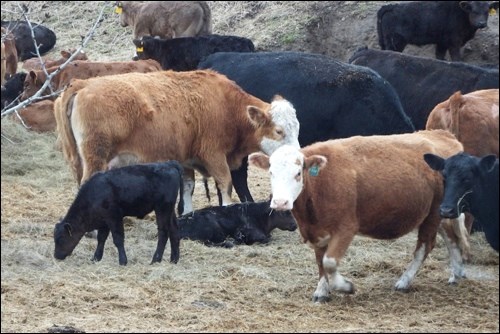EDMONTON, Alta. — Canada's beef industry may be on the verge of a significant upswing, but it will take concerted co-operation from producers.
After another export-threatening case of bovine spongiform encephalopathy (BSE) was reported in Canada last year (and, nine months later, deemed an isolated incident), South Korea has reopened its borders to Canadian beef. That's great news for our multibillion-dollar beef industry.
And there could be even better news for exports on the horizon. That's because there are other, much bigger markets for beef, mostly notably China.
However, it will take some pretty significant industry collaboration to fully capitalize on this opportunity.
We'd all like to believe that international trade decisions are based on science and not emotion. But realistically, fear is a driving factor. That's why even the possibility of a new BSE case hastens the need to enhance our reputation at home and abroad. A system for effectively tracking cattle through every stage of the food chain - from producer to feedlots, packers to retailers - is critical for the reputation of the entire industry, its long-term sustainability and access to emerging markets.
It's hard for Canadians to fathom the size of the Chinese market. There are more people in China learning English than English speakers in all of North America. Over the course of 10 days, during Chinese New Year, Chinese telephone companies generated nearly $750 million on SMS messages - at pennies per text.
Canada enjoys a good reputation among the Chinese. Plus, they like the taste of our beef, especially in comparison to Australian beef, a much more common import. But Australia can only produce so much - and not nearly enough to meet the growing demand for beef in China.
Affluent Chinese buy imported beef. They want to show their success and enjoy what the world has to offer. And they're willing to pay premium prices. One Canadian wine that sells for $55 at home goes for US$900 a bottle in China.
And more than designer bags, fancy cars or nice wine, Chinese people want beef. So if Canadian beef is marketed properly, producers can command those same premium prices.
Despite the massive opportunity the Chinese market represents, there's one problem: food safety is a top priority for China. So any claims Canada's beef industry makes for exports to China must be backed up with verifiable data. With at least 19 BSE cases reported over 12 years, the Canadian beef industry has to do more to prove to the Chinese government that the quality of our beef can be trusted and that trust can be verified.
To build trust with governments like China's, the entire supply chain will have to collaborate to allow us to track our beef from farm to fork.
Until recently, parts of the supply chain have been more interested in domination than collaboration. But, by necessity, that's changing - and rapidly. As consumers everywhere demand to know more about the history of care and quality of their beef, a co-ordinated response is the key to maintaining consumer trust and credibility that will sustain the industry - and allow it to expand into bigger, more lucrative markets.
We're not quite there, but through the Beef InfoXChange System (BIXS), an unprecedented number of industry leaders are beginning to work together to make the dream of industry-wide tracking a reality. By working with different parts of the product chain as an independent value-added provider, BIXS is quickly becoming the backbone of Canada's beef industry. Building a system that verifies the quality of Canadian beef is not only helping to unlock the value of data for everyone from producers to retailers, it's building trust in the entire supply chain - which is vital at home and in the rest of the world.
As an ancient Chinese proverb says, "Opportunity knocks at the door only once."
Twelve years after the BSE case that devastated the Canadian beef industry, it's time to get serious about tracking our beef. The information needed to open the door to emerging markets like China lies dormant in thousands of desktops and smartphones across the industry. Unlocking the value of that data is as easy as signing up to BIXS. What are you waiting for?
Hubert Lau is president and CEO of BIXSco Inc., the company that runs BIXS, a platform for selling data through the supply chain to improve competitiveness, verify the quality of Canadian beef and reflect the pride of the industry.
www.troymedia.com



